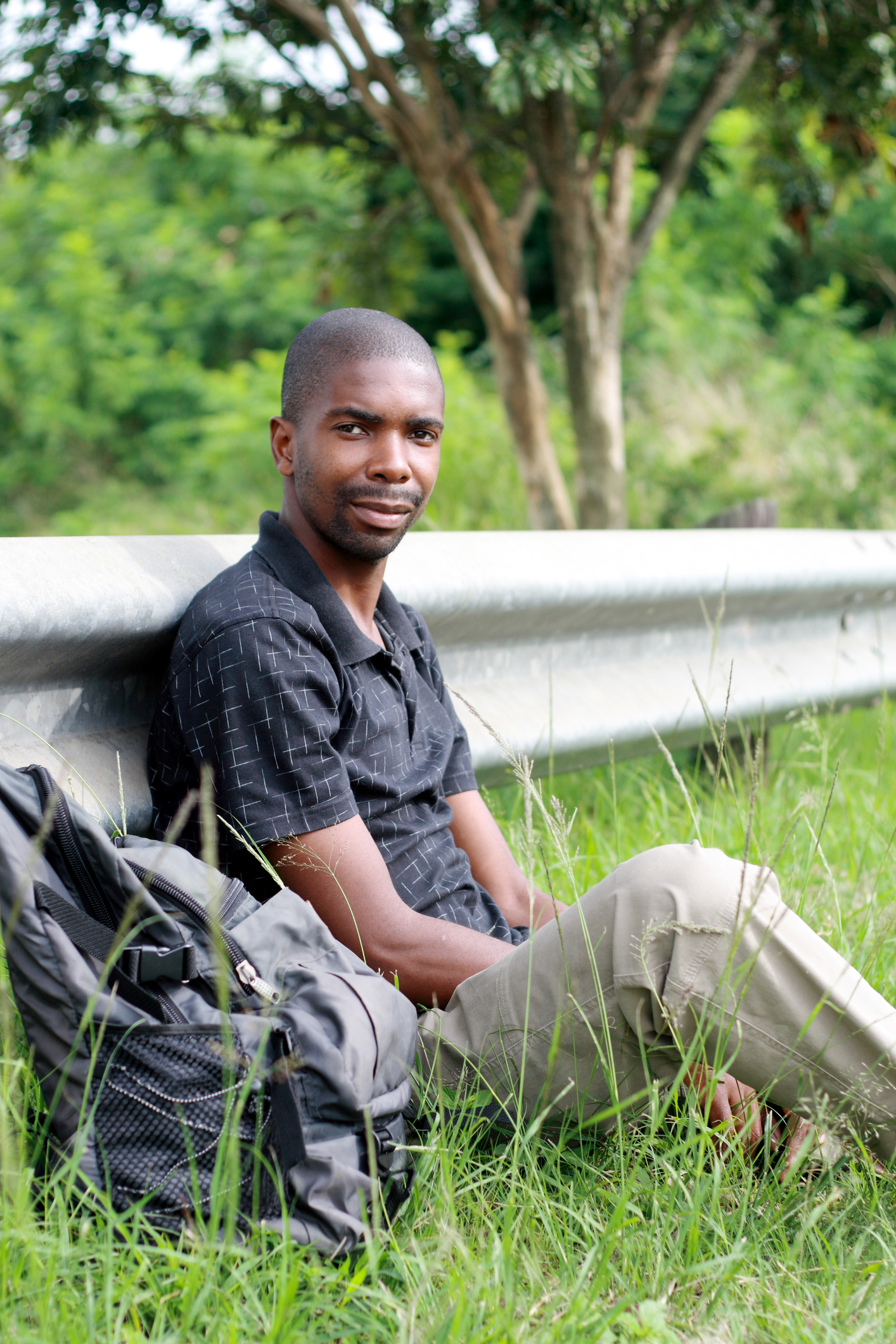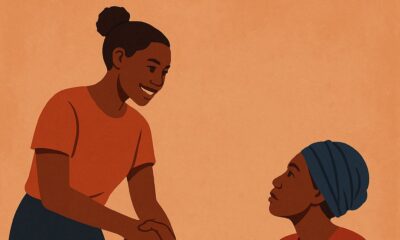Features
Ogunniyi Abayomi: Surviving the Struggle of Nigeria
In Lagos you’ll find stories of the struggle and desperation to survive, despite the harshness of its streets, garages and roads. This distress across the roads and neighbourhoods make for an unhealthy lifestyle, one that has come to be considered normal. Many have died of illnesses like stroke, hypertension and cardiac arrest as a result of this toxic lifestyle.
 I live in Lagos, a cosmopolitan city located in the western region of Nigeria. It is one of the most popular cities in Africa, with a huge population and vibrant economy.
I live in Lagos, a cosmopolitan city located in the western region of Nigeria. It is one of the most popular cities in Africa, with a huge population and vibrant economy.
Lagos is occupied by people of different tribes, religions, cultures and languages, living together in different communities and streets within the state. The accommodating nature of the state is a major reason why it is known as a multi-ethnic society, with a huge number of people striving to survive in it.
In Lagos you’ll find stories of the struggle and desperation to survive, despite the harshness of its streets, garages and roads. This distress across the roads and neighbourhoods make for an unhealthy lifestyle, one that has come to be considered normal. Many have died of illnesses like stroke, hypertension and cardiac arrest as a result of this toxic lifestyle.
There are attractive places and spots in the city, including cinemas, nightclubs, restaurants, hotels, shopping malls and amusement parks, all of them for relaxation and social engagement. Sadly, these establishments have become a centre for physical and sexual exploitation, sexual harassment, exchange of hard drugs, kidnapping and murder.
Despite the tight security across these places, there are tactics used to impede people’s privacy, to facilitate criminal activities.
Lagos has its troubles and struggles. Many people endure this struggle because they have no option, no other place to live and earn a living.
Life in Lagos is symbolic. It is an embodiment of the bitter-sweet life of Nigerians, a description illustrated by the late afrobeat legend Fela Anikulapo Kuti as suffering and smiling in his classic album Shuffering and Shmiling from 1978. The high cost of accommodation, unsteady supply of electricity, terrible roads, illegal arrests by policemen, and the physical and sexual harassment by street destitute are examples of what we encounter daily in our struggle to survive.
Despite these challenges, we love to party, we love social events and outings, actively seeking fun despite the harsh realities of our environment.
It is a different story in the north-east region of Nigeria: Adamawa, Borno and Taraba states have been in crisis for years, yet solutions have yet to be proffered to solve the insecurity issues encountered daily.
Aliyu, a brilliant professor, was killed in Taraba during the herdsmen and farmer clashes in his local region. Stories like Aliyu’s are common in Benue, Nasarawa and Plateau states, yet nothing is being done to resolve it. The people live in fear. They have nowhere to run.
Sambisa and Bama regions of Borno State is occupied by Boko Haram. Like Al-Qaida, ISIS and Al-Shabaab, they are observed and seen as jihadists, fighting to save their religion from going into extinction.
These men have various artilleries, weapons and guns in their camps. They are dressed and covered in veils and gowns in the name of being a radical for Islam. In prayers before the attack they say Bismillahi Rahmani Raheem, which means in the name of Allah, the most gracious and most merciful. They recite the Hadith and Surat across this forest.
After their attack, it is Allahu Akbar or Alhamdulillah, which generally means Allah is great or to Allah is all praise. They pray for the souls of fellow radicals who lost their lives, seeking to make it to Aljanat Fidaus, which means paradise, in the false belief that it is their reward for the “good fight” that is actually against the tenets of the religion.
Boko Haram has attacked the military base of the Nigerian Army, killing valiant men of war, rendering the military base empty. The killing of Hauwa, the humanitarian aid worker, by the terrorist group is a story that raises our doubts on the rate of insecurity in the north.
This has made this group to be listed among the most dangerous terrorist groups, alongside ISIS and Al-Qaida.
I remember President Muhammad Buhari‘s 2015 campaign promise of fighting corruption, crushing Boko Haram, and creating zero tolerance for insurgency across the country. I believed he was capable, considering his military experience and career. We were convinced he had the right character, plan and strategy to overcome insurgency, and he won the heart of the people via this promises.
The promises are rather sad tales of disappointment. It’s normal now to see Shekau, the Boko Haram Leader professing to kill more people, including soldiers, if their demands aren’t met. I am sad about the Chibok girls and Leah Shaibu, a Christian girl enslaved for her refusal to convert to Islam.
A few months ago, I lost a friend who reportedly committed suicide, as investigations and findings to his death claimed. I was sad he had passed on with being helped out of his terrible situation.
The high rate of suicide across the country is alarming. It is observed that many of these people sought help psychologically, yet no one looked toward their condition. The stigmatisation became unbearable, leaving them with only the option of suicide.
We have not forgotten the stories of rape, the assault women and children encounter daily. A pastor forces himself on a member, and like several other cases, it has been forgotten. We blame the victim and pity the culprit.
Nigeria offers stories of both happiness and sadness. The joy of being a Nigerian is forgotten when we see an individual being killed. Yet we all keep trying to survive in this country.




















